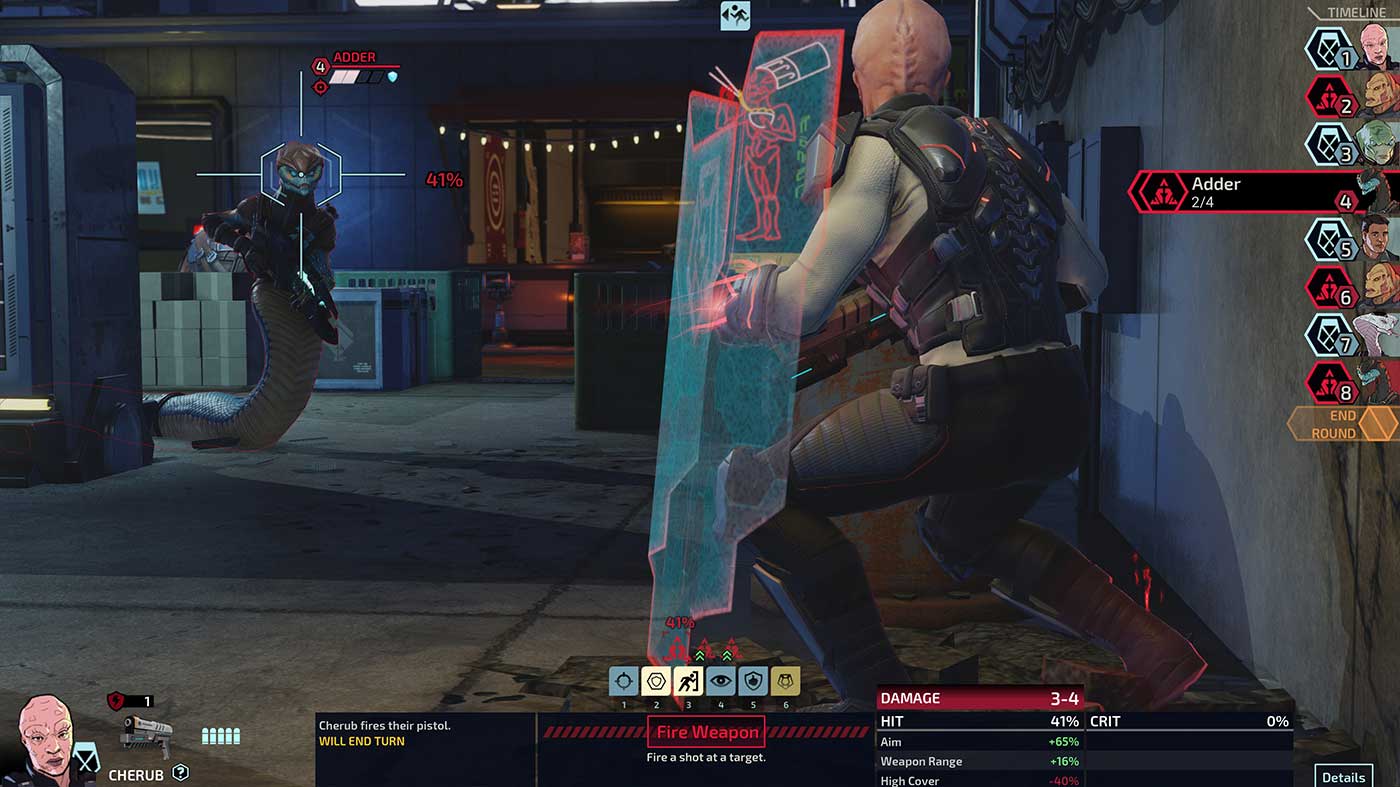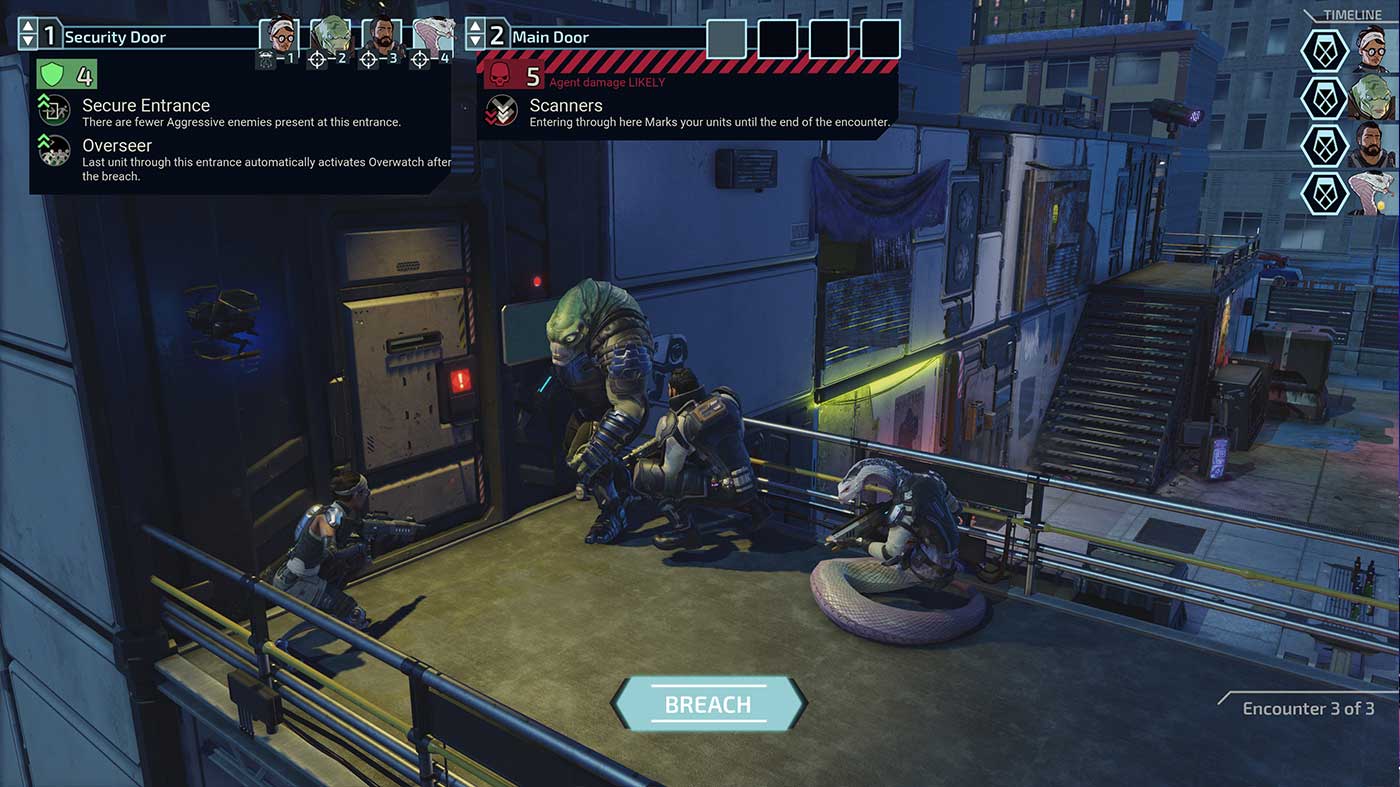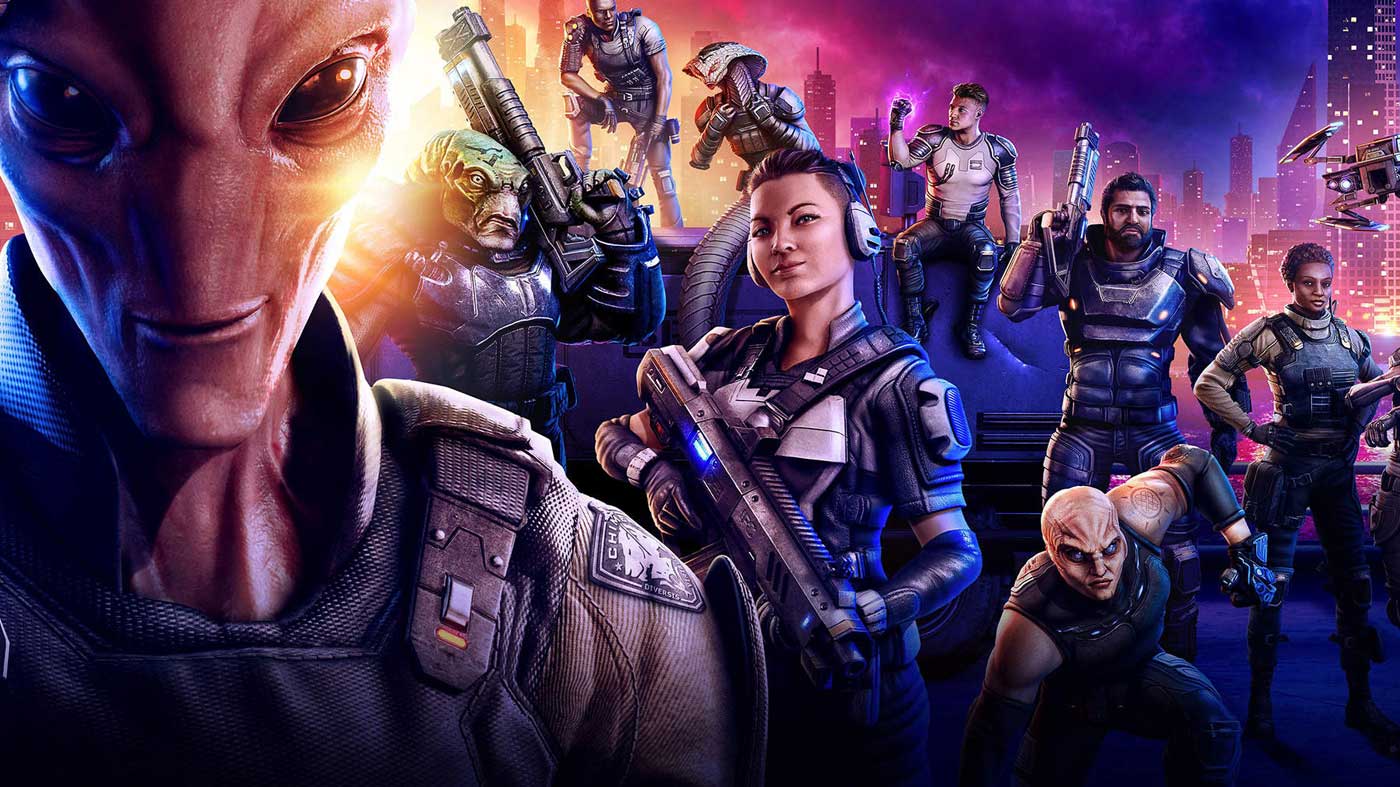Just a week ago, the last week in April appeared to belong to Gears Tactics, the little strategy game that could. Developed by a team which, on paper, lacks the experience to carve out a true, strategic experience, it appeared to be a safe launch window, free from rival crossfire. Chimera Squad, like the titular team it’s named after, breaches and catches Gears Tactics unaware. Not only does it now face enmity, but it also faces it from the best in the bloody business.
XCOM: Chimera Squad is a standalone serving of what Firaxis does better than anyone else, though there are creative choices here that are bound to perplex purists out there. It has been said that Chimera Squad is neither an expansion or sequel but rather a jumping-off point for those who perhaps haven’t experienced the series before.
Full disclosure, I am one of those people. I’ve no history with XCOM, I’ve never known the pain of naming and building up a character only to carry them throughout a career of firefights and lose them in an outpour of heartbreaking anguish. Of course, the concept of permadeath isn’t foreign to me and the fact that Firaxis has chosen to omit it from this game is a surprise. When a character bleeds out, they don’t disappear to the void never to be seen again, you’re instead prompted with a fail screen, along with a beckoning dare to press on. The game is still as tough as a two-dollar steak, but without the specter of abject failure looming over you, it doesn’t quite feel like the brutal, tactile Oregon Trail of repute. For the hardcore sadists, Ironman is for you—failure is the end, any loss takes you right back to the start in a crushing fashion.

In the handful of years since ADVENT’s iron fist loosened its grip, City 31 has been a peaceful place for all species and sojourners to hang their hat. That harmony is uprooted on the night of Mayor Nightingale’s assassination, an act of war that ushers in the arrival of Chimera Squad. Composed of aliens and humans alike, the squad act as peacekeepers for what remains of the city and inquisitors of a plot to remove the root and branch of the city’s politics and create unrest that’ll tear it apart. It’s these two arms of Chimera Squad that make up the game’s loop—the four-strong death machine cleansing inch after inch of the city, and the clues that led them there.
Managing the day to day operations and logistics of Chimera Squad when you’re not out filling body bags feels like a real natural extension of the strategy genre. Micro-managing load-outs, the team’s training, and the avenues of investigation really break up the punchy, brief encounters and turns into a real challenge of its own as the city begins to descend into anarchy and you’re tasked with retrieving it from the brink of collapse. The initial downpour of overwhelming menus soon subsides as it becomes second nature to sift through the various departments and assign bodies to desired tasks. I soon settled on a team composition that I used, when available, throughout the game’s near twenty hours. Only when squad members returned from battle broken, beaten, and scarred, which is a mark against them that dents their attributes, did I send them off for rehab, only to throw them back into the fire once ready. This small punishment, an interruption of the preferred four-piece, is deterrent enough to practice caution and shows that reckless abandon still leads to consequences, even if they’re not as grave as they once were.

When in the field, there’s a continuing tension that really drives each striking encounter along. Preference of tactical strategy over real-time is a personal one, but I can’t help but feel I’m locked into a real chess battle with every encounter and more often than not, I feel I’m a step behind until I’m not. Winning the arm wrestle doesn’t come easy, though the sweet relief of wearily scraping through again never wears off. Additions to the series include the game’s breach mechanic that sets up both your team’s move order and grants certain buffs and advantages depending on your point of entry. If you’ve got a key card in your inventory and can swipe in through that otherwise locked door, your squad might benefit from improved mobility or even guaranteed shots landed to kick off the encounter. It’s a system that’s entirely complementary to the new interleaved turns which is a rather big departure from the regular XCOM experience of plotting out moves for your entire squad each turn. In Chimera Squad, it’s one for one much like the battle system in something like The Banner Saga. I feel as though this is a bold but necessary step for the series, I’m not sure it’ll remain in mainline releases, though it certainly adds another strategic layer in a game whose cup is already running over.
Without the ability to name and create little personalities for your characters, until the modding community fires up, that is, Chimera Squad really needed to be filled out with likable, well-written and charismatic personalities and for the most part it is, even if they’re all boilerplate archetypes torn from the glossary of ‘Sci-Fi 101’. Despite this, there remains a genuine rapport between the cast, most of whom remain in reluctant servitude to the ongoing war. Firaxis do a good job of making this world in conflict believable, so there’s no suspension of disbelief required to imagine these eleven have interlocking histories and pasts rich with friction.

Chimera Squad isn’t the benchmark of presentation, given the game’s presumably meager funding, though there’s something alluring about its distinctly divergent style. Though it’s a slog and, as a result, is probably doomed to land somewhere distant, far from the mainstream, the cast has a real hero shooter caliber, even if Godmother is essentially Apex Legends’ Bangalore with shorter hair, though I did recruit a Serbian cobra named Torque and she was incredibly badass. Though the three acts revolve around uprooting three different syndicates, the city tends to bleed together by the time act three rolls around—a dozen fights on a roof, a dozen fights in a warehouse, a catwalk, and so on. It’s easy to forgive because Chimera Squad’s inherent diversity means, regardless of grid layout, each encounter can be different. Given the isometric viewpoint, the odd camera hitch can rear its head from time to time as entire turns are obscured though it did feel like the game began to sweat toward the endgame with a few notable crashes and a lot of animations glitching out and not happening, creating a lot of awkward pauses until it worked itself out, teleporting characters about freely.
Though it certainly doesn’t suffer greatly from it in terms of game feel, Chimera Squad seems to have been developed using the change in Firaxis’ pockets, based on the game’s motion-comic storytelling, repetitive encounter spaces and the fact this game is fifteen bucks at launch. This might sound like a criticism but it really isn’t. It’s remarkable just how far this shoestring budget has stretched in creating an XCOM game that, while still serving their fanbase, places its arm around new players and welcomes them into the fold.




